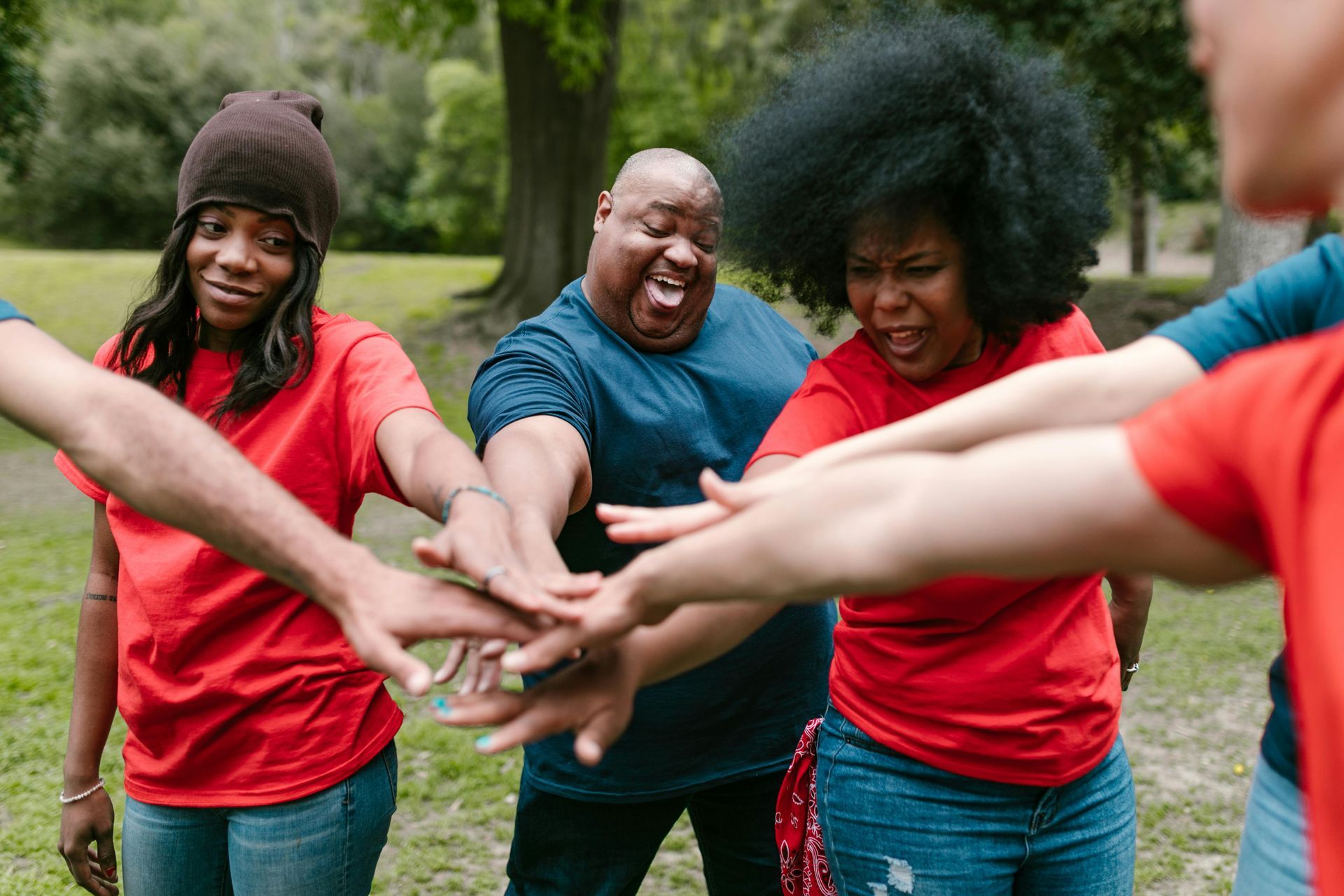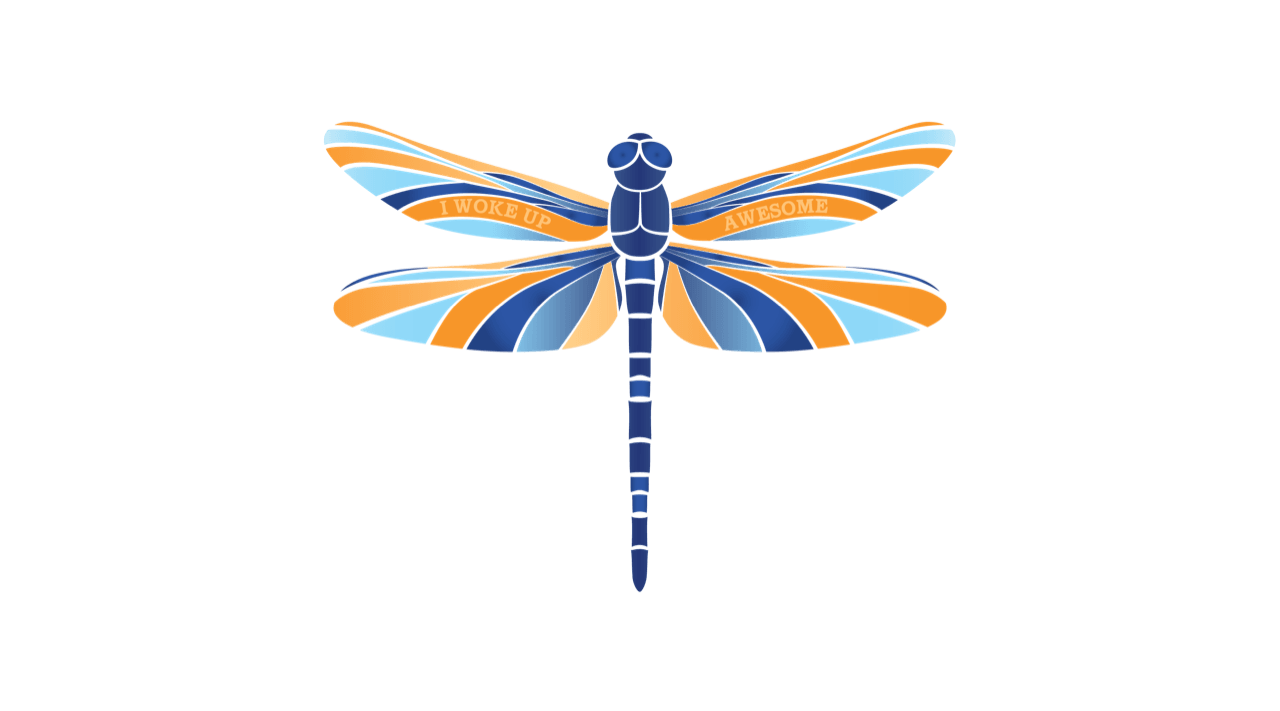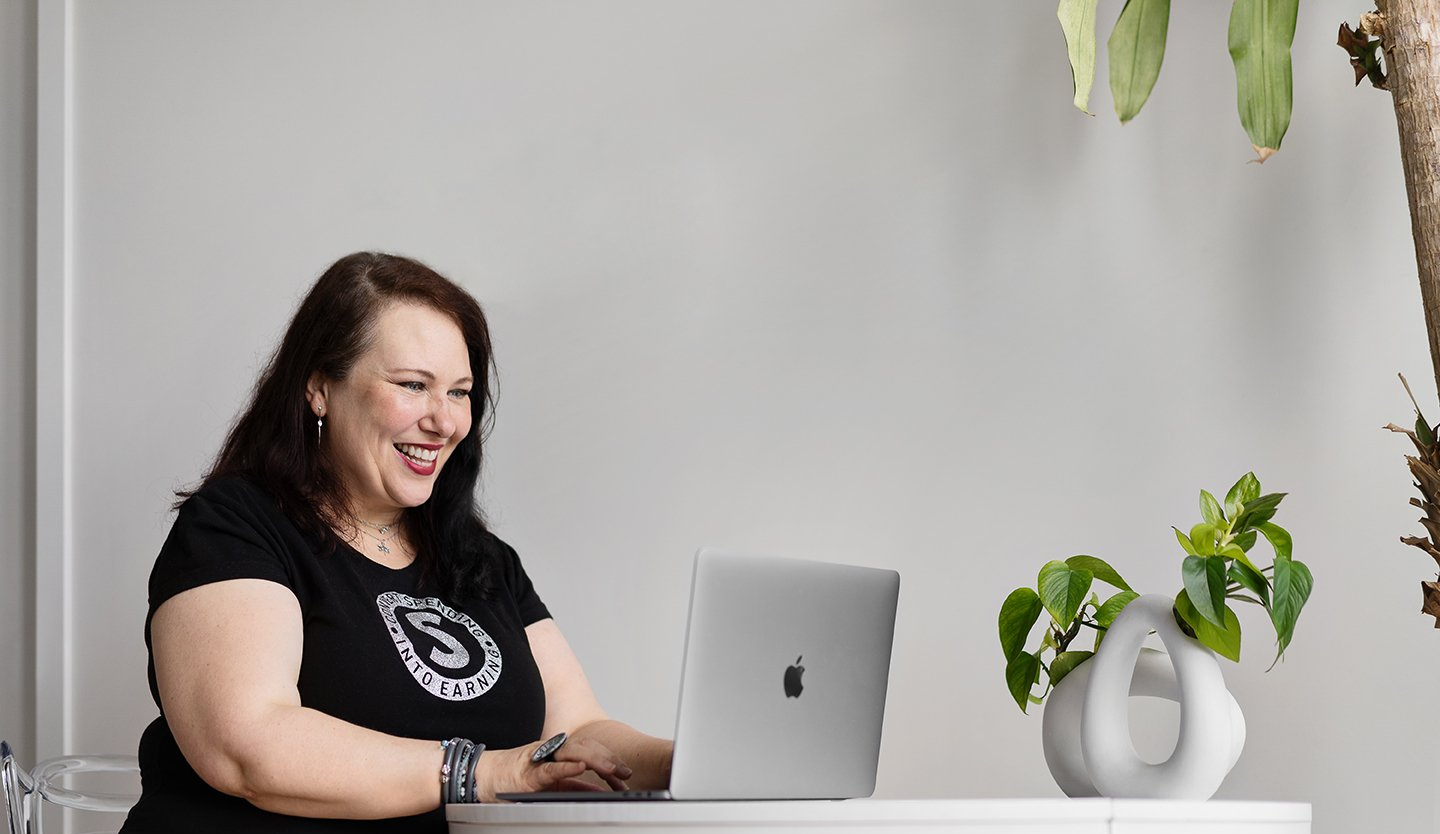This week we meet Ray Amanat of Heroes In Action - a non profit that supports children and adults in being their own hero. Ray’s plate HIA-NOW represents his life’s work and the organization he founded. Ray has been a victim, a bully and a hero and through his experiences he is teaching people how to be safe and be a hero to themselves and others. Let’s go meet Ray.
Connect with Ray and Heroes In Action:
Website - https://www.heroesinactionnow.org/
Instagram - https://www.instagram.com/amanat.ray/
Facebook - https://www.facebook.com/HIANOW
Support HIA-NOW with your purchases - www.shop.com/heroesinaction
Trista's PL8STORY Podcast Links
Nominate a plate - https://www.pl8story.com
Meet your host - https://www.iwokeupawesome.com
Subscribe to Trista's PL8STORY Podcast on Apple Podcast (http://bit.ly/itunespl8story), Google Podcast, Spotify or your favorite podcast app and access all published episodes
Episode Transcript available at www.iwokeupawesome.com blog post
Episode Transcript:
HIA-NOW
[00:00:00]Trista, HOST: [00:00:00] Welcome to this week's episode of Trista's PL8STORY (Plate Story) Podcast. I'm Trista Polo from iwokeupawesome.com and I am your host. Each week, we learn the story behind that vanity plate. You know, the one you saw driving down the road... what did it say? What did it mean? Why did they choose it?
Welcome. I'm so excited to have Ray Amanat from St. Louis, Missouri here to talk about his vanity license plate, which is HIA-NOW. Welcome Ray.
Ray Amanat: [00:00:31] Thank you.
Trista, HOST: [00:00:31] So tell me what made you decide to choose that as your plate? Tell me the story behind it.
Ray Amanat: [00:00:35] Well, I have a foundation that's called Heroes In Action. and our website is heroesinactionnow.org, because you want a hero right now. You don't want to hero later.
the whole premise behind that as we train people to be their own heroes, so they don't have to wait on anyone. So you're going to be your own hero in action right now at the moment that you need it [00:01:00] most. we are a nonprofit organization dedicated to violence prevention education.
So. Whether you're a child, a female, a parent has a concern about themselves. You know what, what if something happens to me, who's going to care for my family. So how can I prevent bad things from happening to me so I can always be around. And then you have parents that have kids that always ask this question: "Have I, as a parent done everything I possibly can to prepare my child for when they go away to college?" We want them to be their own hero. So they have the knowledge, the verbal side and the physical side of knowing how to get themselves out of bad situations. So Heroes In Action is to give people peace of mind so that they know they can [00:02:00] handle situations that go bad.
Wow. That's important work. When did you establish the organization? How long ago
Heroes In Action has been around for about 14 years prior to that, I had a brick and mortar martial arts school. I taught a karate school, for over 25 years. I owned the business. I've been doing it for over 40 years. and when that business by unfortunate reasons, got shut down, because of my landlord, I was at a crossroads and decided instead of a, another for-profit business where I work 60 to 80 hours a week, I'd rather do a nonprofit, No whenever brick and mortar business is like a karate school...it's always driving traffic to the school, trying to bring people to come to me. With the nonprofit, I go to the people so I can go to the schools. I can go to the [00:03:00] communities I can go to anywhere in the country or the world and do seminars on violence prevention. So I don't have a walls or barriers around me.
I actually reach more people now then I did when I had a martial arts school. Well, not now due to COVID, but before COVID I actually reached and taught more people, through lectures and seminars than I did when I had a brick and mortar business.
Trista, HOST: [00:03:26] Wow. That's great. Now you said that you work with a lot of different groups and ages, both women, men, boys, girls.
What is your most popular program that you do for kids?
Ray Amanat: [00:03:38] Well, I do school assemblies on anti-bullying. So whether it's a private school, public school, a school for children with special needs, I adapt the message to fit the school's needs.
and then of course we do programs for Boy Scouts, Girl Scouts, or if you have a church youth [00:04:00] program that, you know, is looking at, what, what can we do to build self-esteem, build confidence, a message that coincides with the message of their church. I adapt what I teach to fit the organization's needs.
Trista, HOST: [00:04:17] That's awesome. So how do you teach me to be my own hero? Okay.
So when I go into schools, Ray Amanat: [00:04:23] most schools are zero tolerance policies. So I cannot teach punching, kicking self-defense or anything physical. There's, you know, there's a verbal side to things. And then there's the, if I've done everything I possibly can, how can I physically protect myself. With that, that would be an afterschool program, or that would be a seminar type program that I would do for that community.
with regards to teaching you how to be a hero, the biggest thing is not being labeled a tattletale, not [00:05:00] being labeled a snitch, a crybaby, anything like that. It's. Learning how to use what I call a Script of Safety to draw the right kind of attention. Like if I were to push you and you were to run to the teacher and say, teacher Ray's pushing me, everyone's going to call you a snitch.
Everyone's going to be like, you're a brown-noser or a teacher's pet. and you're going to deal with that for the whole school year. But, you know, and I say, you know, always question without fear and make a bold statement. So the questions are what and why, and then the bold statement are I, and stop. Okay.
"What are you doing this for? What did I ever do to you? Why are you pushing me? I don't like you pushing me. Stop pushing me." So when I say it and I stand my ground at a safe [00:06:00] distance, and I say it loud enough to attract the attention, I'm not being a snitch. But I've got everyone else that sees I'm standing up for myself, you know, they're like, Ooh, fight, fight, fight... you know, they're anticipating that, but I say it loud enough to get other people's attention. you know, then it's up to the teachers that come in and stop it from happening.
So what I'm trying to do when I go into schools is enable kids to save face in front of their peers so that they're not put in a category of tattletale or snitch. The only person that uses that language is the bullying. You should not be afraid to talk to your teachers, to talk to your school counselors, to talk to your principal or talk to your parents. When they say you're going to be a little mama's boy, you're going to go home to your mommy and cry.
I do this because I was bullied myself throughout my whole childhood and I didn't know what to do. I didn't know what to say. I didn't want to say [00:07:00] anything to my mom because I knew she would go to the school... raise a whole bunch of stink. And then the bullies would say see, I told you he was a mama's boy and they would be right.
I didn't want to say anything to the teachers, because then the bullies would be right. when a child is afraid to talk to their own parents or teachers, because the bullies are saying your momma's boy... a teacher's pet or, or anything like that. They try to take matters into their own hands.
That's when the child will hurt themselves. Commit suicide or become the next active shooter in the school. Or they're going to go shoot the bully because they don't know what else to do or who else to go to. If I can save a life by preventing a child from hurting themselves, committing suicide, or from becoming the next active shooter and saving a lot of lives, I've done my job.
so my goal is to reach out to kids and one, let them know it's [00:08:00] okay to talk to parents and teachers that, you know, the only person that's giving them the bad label is the bully. Two, how do you help the bullies? How do you change their behavior? By me drawing attention to the situation?
Hopefully the school has, it's what I call the three PS programs.
Policies, Procedures, and Programs. So every school you have to ask the school, what are the school policies? What procedures do they take to handle, to deal with the bully and to deal with the victim of bullying and what programs do they implement? If they don't have a program - why not? You know, if they don't have policies, if they, and the next thing is you could have a million policies, but if you don't enforce any of them, you're always going to have issues and problems.
I have a lot of parents that come up to me and say, Mr. Amanat, you know, what do you [00:09:00] do when the teachers are the problem? And I'm like, what do you mean by that? it's like the teachers don't do anything. you know, they don't know what to do. You have to understand that teachers kind of have their hands tied. If there's a fight that breaks out of the school and the teacher puts their hand on a child, you're going to have a parent say, how dare you touch my child and they can lose their job for that.
If there's a fight that breaks out and the teachers don't do anything physically to separate them, you're going to have a parent that's going to say, where was the teacher? How come you didn't stop my child from getting hurt? So teachers are kind of stuck, which is why schools need to implement policies, procedures, and programs so that the teachers know that if they do something based on those guidelines, that they're not going to lose their job.
And they'll be more proactive in stopping things from happening to kids.
Trista, HOST: [00:09:59] [00:10:00] that's really interesting. I love that you don't just work with the future victims, but also the bullies.
Ray Amanat: [00:10:06] Yeah.
Trista, HOST: [00:10:07] . One of the things you teach is how to know when you're putting yourself in danger, especially kids.
And that was fascinating to me because I was thinking that, yeah, kids probably don't even realize how easy it is to get in danger. Can you talk a little bit about some of those?
Ray Amanat: [00:10:24] Well, now you're talking about dealing with a child predator.
somebody that's grooming a child or luring a child into a specific lifestyle. This is where human trafficking, sex trafficking comes in. So, you know, when I talk to kids, I try to get them to understand what a safe or unsafe person looks like, what a safe or unsafe language, a lot of parents, and a lot of the teachers will say, don't talk to strangers.
And for me, what that does to a child is instilling fear and, yeah, they're afraid to [00:11:00] talk to strangers. So they're afraid to approach a police officer. They're afraid, especially with what's going on now with law enforcement that they're making law enforcement to look like bad people. So who's your child going to go talk to?
So teaching your child the difference between a safe or unsafe adult. safe or unsafe language so that they have an understanding; it's not, don't talk to strangers. It's learn how to talk to strangers. When you learn how to talk to strangers, that they don't pick up on those verbal cues that should raise a red flag that, this is not a safe person for me to be talking to.
For example, if I were to say what kind of candy do you like? is it a safe question for me to say, what's your favorite candy bar to anyone? Yes. That's safe.But if I were to say, do you want some candy? That's where, it [00:12:00] becomes a little bit different. If I were to say, do you like puppies, everyone likes puppies. But if I were to say, do you want to see my puppy?
So with kids, that are pretty much elementary school age or younger, or even middle school because I can con most kids to do whatever I want. It's getting the kids to always ask for permission. I have to ask my mom. I have to ask my dad. I have to ask my teacher, my babysitter, my guardian, whoever is looking out for me at that moment. I have to get permission from them.
Do you want some candy? Let me make sure it's okay... that you're a safe person to get candy from. If I were to say, do you like six flags? Or Disneyland, of course. Do you want to go to six flags or Disneyland? Well, let me ask my mom. Now you're bringing it to the attention of the adults [00:13:00] to where they're going to be like, who's talking to my child and why are they asking me this question or asking them this question? And they can intervene.
know you want, most parents want their kids to be independent and to be able to make decisions, but sometimes when you have predators that are preying on your children and know how to befriend them. When I say this is a example of grooming, what's your favorite candy bar? What's your favorite candy bar.
Trista, HOST: [00:13:28] Kit Kat
Ray Amanat: [00:13:29] Okay. Kit-Kat and then the next time we meet guess what I have a Kit-Kat for you? And you're like, Oh, thanks. This is a nice guy. I'm making friends with you. And I keep giving you a little gifts and keep finding out more and more details about you until you know, the next thing is, Hey, what would you, if what bad word would you have to say to get in trouble by your parents?
Give me an example.
Trista, HOST: [00:13:58] Poop.
[00:14:00] Ray Amanat: [00:14:00] Oh, my gosh, you just said poop. Should I tell your mom you said poop? Most kids are going to say no, please don't tell my mom. I don't want to get in trouble. I don't want to get grounded. So then the predator is going to say, all right, well, I'll keep that a secret. If you can keep a secret.
And when, an adult predator starts getting your child to keep secrets from you. That's when they're grooming them. That's when they're going to try to control them, they're fishing. They just sunk that hook in. Now they can control and manipulate your child until your child eventually is going to just walk away with them out of fear, because they don't want to get in trouble.
It's important for parents to talk to their kids, no matter how much trouble you think you're going to get into at home, I'm going to ground you. I'm going to take away your cell phone, your computer, your TV time. Your friends are never going to come over and spend the night with you or whatever else.
[00:15:00] That's not worse than what this stranger is going to do to you. just know that I will always be here. I will always love you. and you need to always be honest with me. If anyone comes up and says, Hey, can you keep a secret? There's no secrets with mom and dad. You know, you're, you're honest with us and let us know if anyone's asking you to keep a secret.
So you need to teach the kids and the parents in order to keep them safe.
Trista, HOST: [00:15:28] Yeah. Absolutely. And you're an author as well. You wrote some books for kids. Can you talk a little bit about that?
So the first book I wrote was entitled "Bully Victim or Hero." All my books are available on amazon.com or Barnesandnoble.com.
"Bully Victim or Hero." Is pretty much my story of how I went from becoming the victim, where I've I was severely bullied at school and at home [00:16:00] by my parents, my mom, too, I became the bully. Once I got into martial arts...my instructors were not Miagi. My instructors were the Cobra Kai instructors.
So they taught me how to be a really good fighter. and I, I was empowered and I got to a point where instead of me, please don't hurt me. I would be, you want to fight me and you right now? Yeah. so I would get in trouble for looking for fights. Once I got into an, a school ownership role where I was the mentor to my martial arts students, I had to reevaluate because I was teaching the same way I was taught. So I was raising my students to be bullies. When I had parents come to me and say, my child got suspended from school. And I'm like for what? And they're like for what you taught them. I had to rethink what type of a mentor I was going to be to my students, because I've been on the end of both [00:17:00] sides.
I've been the victim and I've been the bully and I didn't really like either one. I didn't like getting in trouble being the bully and I didn't like not knowing how to stand up for myself being the victim. So it's, it comes down to training. It comes down to being educated. It comes down to me learning more.
So I sought out other educators, other instructors. I work with law enforcement. I've worked with social workers in schools and out of schools and got as much information. And I started creating a curriculum or a way of teaching that I had more positive results for my martial arts students and from the students that I work with in schools that I, the feedback I was getting from everyone is Ray, this is an awesome message. Everyone needs to hear it.
So I knew I was on the right track or right path. So I kept developing, kept developing, kept developing until I created what [00:18:00] I'm teaching now. No, I haven't changed a thing from what I'm teaching with heroes and action for years, because I think I've got it to where I can adapt it to any person of any age size or ability.
Oh, that's great. That's awesome. Now you are more than Heroes In Action Now. What else do you do that you enjoy?
Ray Amanat: [00:18:26] my other passion besides martial arts or what I'm doing now with heroes and action has always been music.
So I played the drums when I was a kid and I'm trying to teach myself the piano and guitar right now. and the other thing that I've been doing, I've been slacking on, but I gotta get back to it is learning magic.
because I want to add, and the whole thing is I want to add music and magic to my presentations when I go to schools, [00:19:00] because I think that with music- I don't know anyone that doesn't relate to a song or relate to a lyric that sends the message home a little deeper, that they can remember, and magic... it's just that attention getter. That keeps their focus on the message. And I relate the magic to the message, to kind of close the show. So I've been working on a few illusions to be able to add to what I do when I go to schools and perform for kids or, or do presentations for
kids. That's awesome. I love that.
Trista, HOST: [00:19:41] And I love that you are going to incorporate music.. so now you live in St. Louis, is that where you've always lived?
I was
Ray Amanat: [00:19:48] born in New York, my parents, my dad was going to medical school in New York. there were
Trista, HOST: [00:19:54] in New York, New
Ray Amanat: [00:19:54] York city, Poughkeepsie, New York. Are
Trista, HOST: [00:19:57] you kidding me?
Ray Amanat: [00:19:59] I
Trista, HOST: [00:19:59] lived [00:20:00] in Poughkeepsie for 24 years. I just moved out of there for like two years ago.
Ray Amanat: [00:20:04] I don't remember much.
Trista, HOST: [00:20:07] I can't believe that we lived in the same place
Ray Amanat: [00:20:12] I was born there. I don't think I lived there that long. Maybe. so Poughkeepsie, but my parents were immigrants from Iran that he, my dad came to the United States for, medical school, went back to Iran and, you know, and came back to the United States to get a separation and ultimately a divorce.
and I said, dad, of all places, why st. Louis as well? I originally went back to New York, but I couldn't find work there. My professor at the university, found a job, a job opening in St. Louis. So he packed up everything and came to St. Louis. And now I'm the only one that lives in St. Louis, everyone else moved.
So I've got three brothers that one's in New [00:21:00] Jersey. One's in San Francisco and one's in Tucson, Arizona. Wow.
Trista, HOST: [00:21:04] You guys are all over.
Ray Amanat: [00:21:05] Yeah, but I'm the only one that stayed in St. Louis. But, so from age four, until current, I've been, a native to St. Louis,
Trista, HOST: [00:21:13] well, I've been so interested in this conversation about what you do when you and I talked a little bit.
I was just shocked by how many ways there are to lore child away from their adults and how easy it really is. And I'm so glad you're doing this work. And I thank you. I don't have kids, but I have nieces and nephews and on behalf of all the children, I know. And even those that I don't thank you for keeping them safe.
Ray Amanat: [00:21:39] It's my pleasure.
Trista, HOST: [00:21:40] So, so important. Well, I thank you so much for sharing all of your wisdom. is, are there any final words that you would like, my listeners to hear about this topic?
Ray Amanat: [00:21:54] You know, we all have roles in life. [00:22:00] at the end of every lecture or seminar, I said, we all have choices in life.
You could choose to be a victim or a bystander, a sheep, do nothing. And either watch people bully other people or become that victim and get bullied or attacked yourself. You know, there's the phrase, evil will always prevail when good people do nothing. You can become the bully and eventually you will get caught.
You know, bullies don't go away. They grow up, they become the spouse abuser, the rapist, the home invader. They become the abusive coworker or the abusive boss. Bullies don't go away. They grow up. If you bring it to the attention of the school at an early stage where you can correct a bully's [00:23:00] behavior, we'll have fewer problems with those people as adults.
Or you can choose to be the hero. The hero is someone that not only stands up for themselves, but it's also somebody that stands up for the person that can't stand up for themselves. So know, your role, if you choose to be that hero, then get trained, learn to know what to look for, what to say and how to physically react to help yourself and other people.
it all comes down to everything that we're doing in life. It's a learning curve. It comes down to training.
Trista, HOST: [00:23:40] Perfect. I love it. Now. I always like to turn the tables and see if you have a question that you'd like to ask me. Do you have a question for me before we wrap up?
Ray Amanat: [00:23:48] So Trista, if there's anything that. If you had a bucket list and there's something that you've always wanted [00:24:00] to do on that bucket list, what is it you haven't done in your life yet?
Trista, HOST: [00:24:08] my husband lived in, I lived in Poughkeepsie for 23, 24 years. I was a real estate appraiser, so I have been in every type of house. None of them impressed me. There are certain styles that I liked more than others, but you know, they're very mundane to me because I've, I mean, I actually did a floor plan of a house that was in the shape of a w like I've seen it all. I'm not big deal. Who cares another mansion, ah, another mansion.
Right? So if I want to, live in a dream house, I'd love to live in something that is non-traditional residence. A barn converted to a house, a church converted to a house. So that's definitely part of my bucket list. I would love to live in a place and I've been looking and they're really hard to find because I don't want to find one that's a project waiting to happen. [00:25:00] I don't want to live in something that's going to eventually be what I want it to be after I build it for five years. And a lot of the things like this that are available are in a state of disrepair or they're ready to be converted. So I'm looking for something that's perfectly converted that matches all of my checkpoints and it's ready to move
Ray Amanat: [00:25:21] into.
See now when I had my martial arts school, my dream was if there was a firehouse that was no longer in service, well, I could live in the upstairs and then when I'm ready to come down for business, I just slide down the pole and the door, and then I teach all my classes and then I go back upstairs to my apartment, you know, but I don't think there's anywhere that in St. Louis that's zoned commercial, residential, that would let me do that. but that's, I've [00:26:00] always wanted a property where I can live in the upstairs and the just go downstairs and do my thing. Cause you know, when you have a brick and mortar, it's like two mortgages. I've got my house payment and then my rent at whatever building.
Okay. That's right. That's right. That's right. Live in the top and work out of the bottom. That's that's a dream for me. I might still be able to do that for Heroes In Action in some way, create an event space.
Trista, HOST: [00:26:29] absolutely. Yeah. Well, I really appreciate you being on. It's so great to get to know your business a little bit and share it with others.
I think every school that exists in the world should have you in to train what you do. We just scratched the surface of it in this conversation. And, I love the idea of the book that you can really choose who you want to be. You don't always have to be what you're conditioned for. So thanks so much for being on.
And I really appreciate
Ray Amanat: [00:26:56] it. Thank you for having me on. [00:27:00]
Trista, HOST: [00:27:00] Thank you for joining us for this week's episode of Trista's PL8STORY podcast. Please subscribe to Trista's PL8STORY podcast to get the story behind all those vanity plates, driving with you on the road. And if you would like to nominate the owner of a license plate, including you... Or visit any of our partners and sponsors come and see us www.pl8story.com. That's P L number eight story.com and give us the details.
If you enjoyed this episode, please drop a review and give us a share. I'm Trista Polo wishing you well on the road to your next adventure.
I Woke Up Awesome Blog











